The crowd storming the Makhachkala airport is not the first anti-Semitic act in Russia's Dagestan. What is happening in the region?
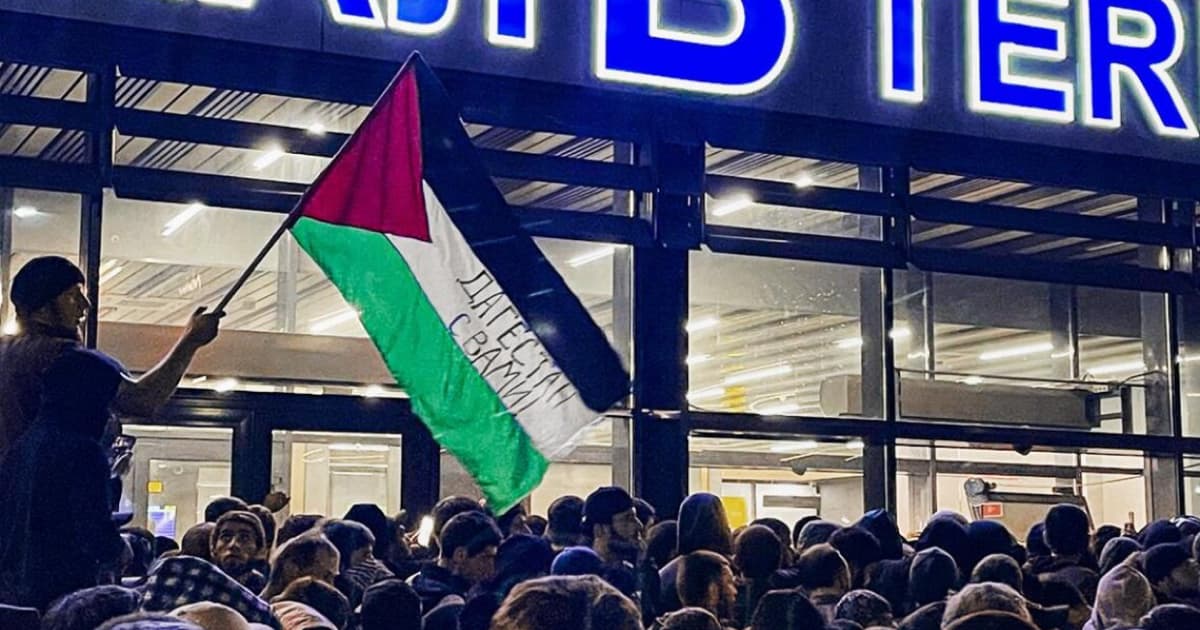
What has happened?
On October 29, a crowd broke into the airport and onto the runway in Makhachkala, the capital of Russia's Dagestan. Hundreds of people were looking for Israeli citizens who had arrived on a flight from Tel Aviv.
This was announced by the head of the Republic of Dagestan, Sergei Melikov.
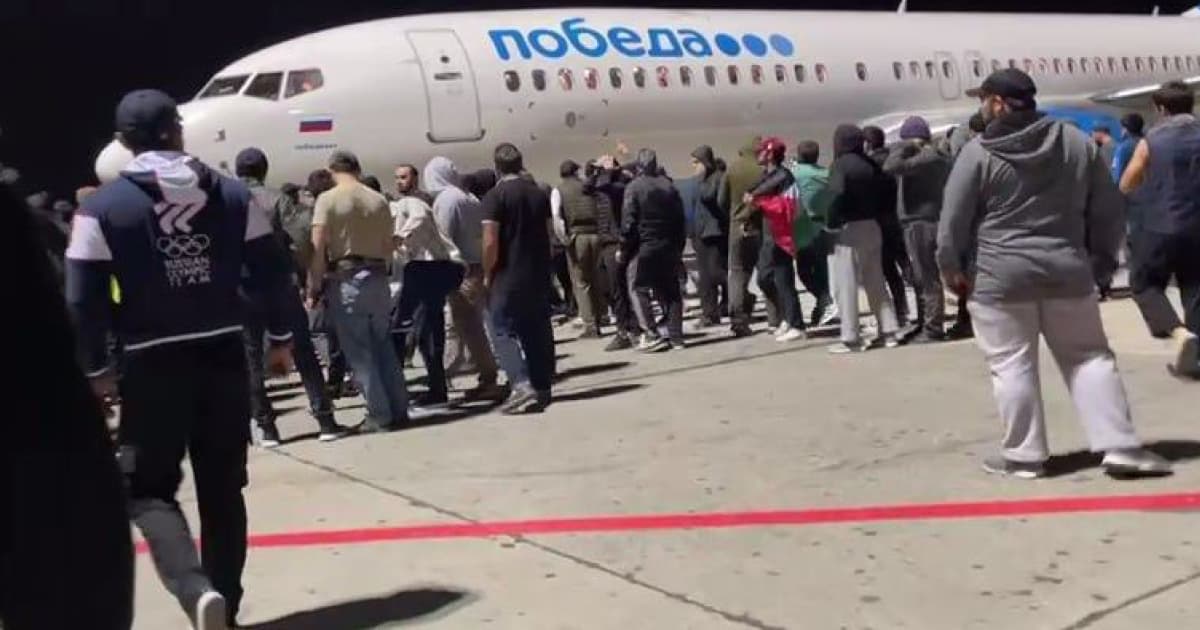
At first, a group of people searched cars leaving the airport, checking the documents of everyone who was near it. Later, the protesters broke into the building and onto the runway.
Russian special forces arrived at the scene. They began jamming communications on the territory so that the crowd could not coordinate further actions. Clashes broke out between the protesters and the security forces, and shots were fired in the air.
All this time, there were people on board the plane from Tel Aviv. A video from the aircraft was posted online.
We have been sitting on the plane for over three hours... because there is an angry crowd there (pointing to the exit - ed.), which neither the Rosgvardia, nor the Rosarmia, nor Alpha (a special unit of the Russian FSS - ed.), nor the president of Dagestan can handle. We are only being served water,
says a woman on board the plane.
Later that night, Rosaviatsiya reported that the crowd in Makhachkala had been dispersed. On October 30, the airport resumed operations.
The Russian Interior Ministry for the North Caucasian Federal district allegedly identified 150 demonstrators. Police detained 60 of them. The agency also reports nine injured police officers. Two of them are in hospital.
At the same time, the Dagestan Ministry of Health reported 20 injuries. Ten people were admitted to hospital. Two of them are in serious condition.
Sergei Melikov, head of the Dagestan Republic, Sergei Melikov, Rashid Temrezov, Head of Russia’s Republic of Karachay-Cherkessia, and Kazbek Kokov, President of Kabardino-Balkaria, and the Coordination Centre of Muslims of the North Caucasus called on residents of the North Caucasus to refrain from aggressive actions and to prevent attempts to incite ethnic hatred.
Red Wings flies from Israel to Dagestan five times a week. In Makhachkala, passengers can change flights to Moscow and St Petersburg.
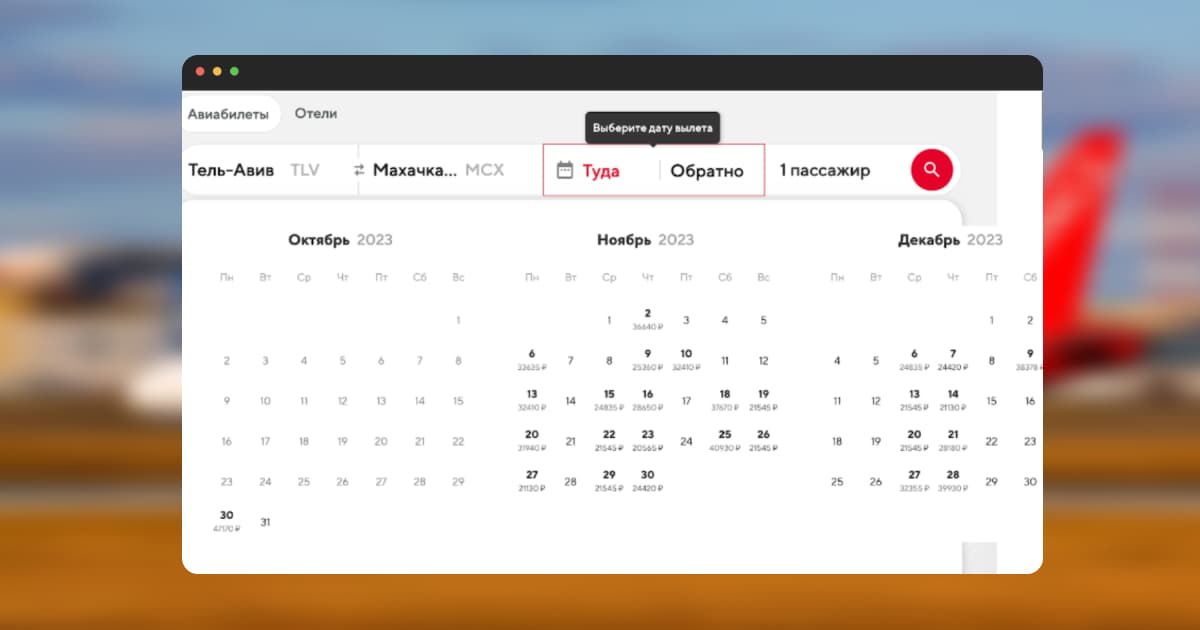
On the eve of the demonstration, social media posted messages calling for the Israelis to be prevented from entering the region.
What has happened? Extremist resources administered by Russia's enemies, far from Dagestan and especially from Islam, have spread bellicose calls, which, unfortunately, were responded to by some hotheads,
said Sergei Melikov.
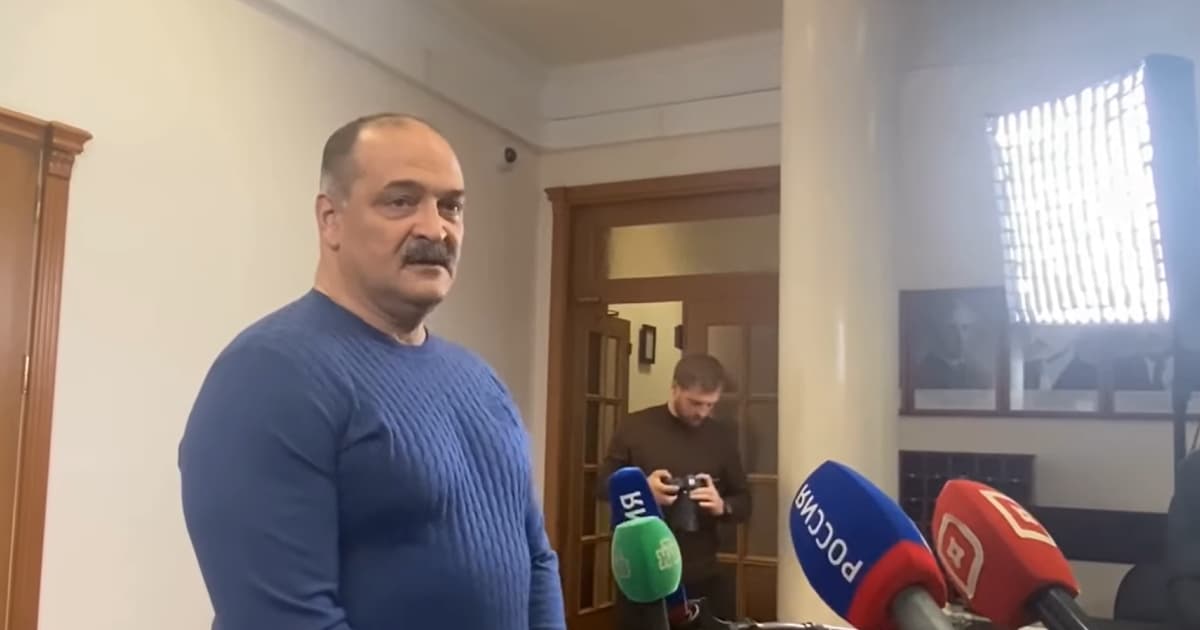
He later blamed Ukraine and the "Banderites" for fuelling the hatred.
"Today we have received reliable information that Utro Dagestana (Morning of Dagestan) channel is administered and regulated from the territory of Ukraine - by traitors and Banderites," Melikov said.
The Ministry of Foreign Affairs of Ukraine rejected the allegations.
The Russian Foreign Ministry's accusations of Ukraine's involvement in the events in Dagestan are an attempt to shift responsibility from a sick head to a healthy one,
commented the ministry's spokesman, Oleh Nikolenko.
The administrators of the Utro Dagestana channel, which has 1,744 subscribers, responded to the head of Dagestan's statement.
In any uncomfortable situation, the authorities always try to blame Ukraine. Russia's enemy is seated in Moscow! Utro Dagestana is an independent channel!
the statement reads.
The channel published videos of the events at the airport, condemning and ridiculing what was happening in Makhachkala.
"Here is the moment of breaking down the door at the Dagestan airport. Is this civilised behaviour?" someone wrote under one of the channel's posts.
What is Russia’s response?
Tatyana Moskalkova, the Russian Ombudsman, responded to the events in Makhachkala.
The events ... are aimed at inciting ethnic hatred and may lead to gross violations of human rights. The goal is to destabilise the civil society in Russia,
she wrote.
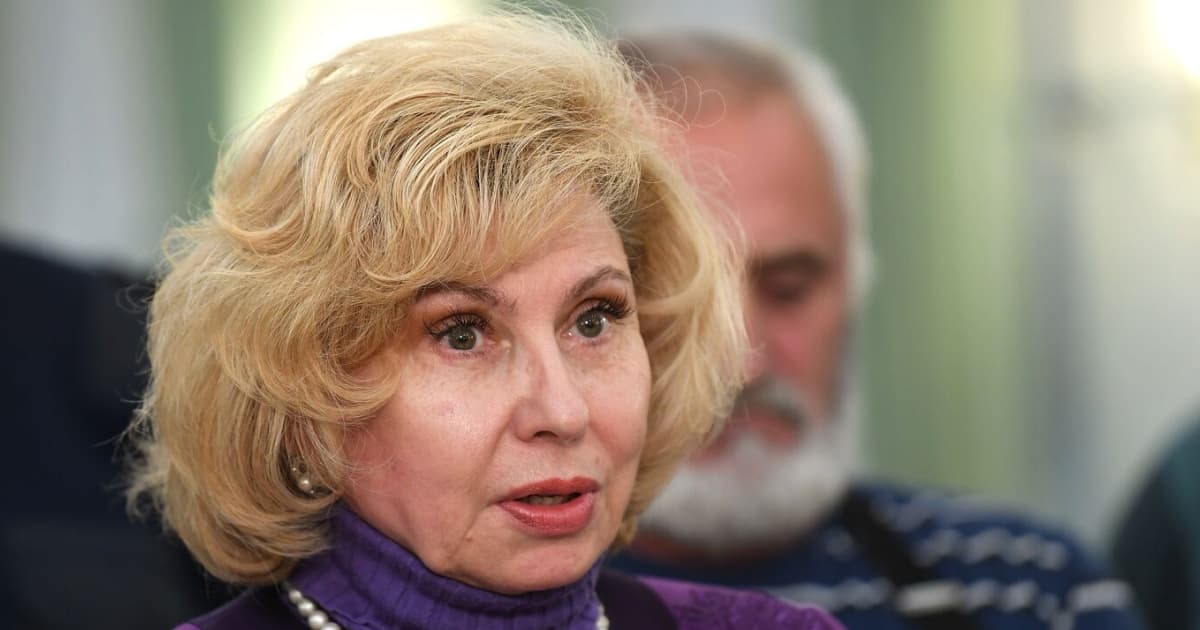
Russian presidential spokesman Dmitry Peskov called the anti-Semitic action in Dagestan "external interference, including information influence."
Putin will hold a representative meeting today ( October 30) to discuss Western attempts to use events in the Middle East to split Russian society,
Peskov said.
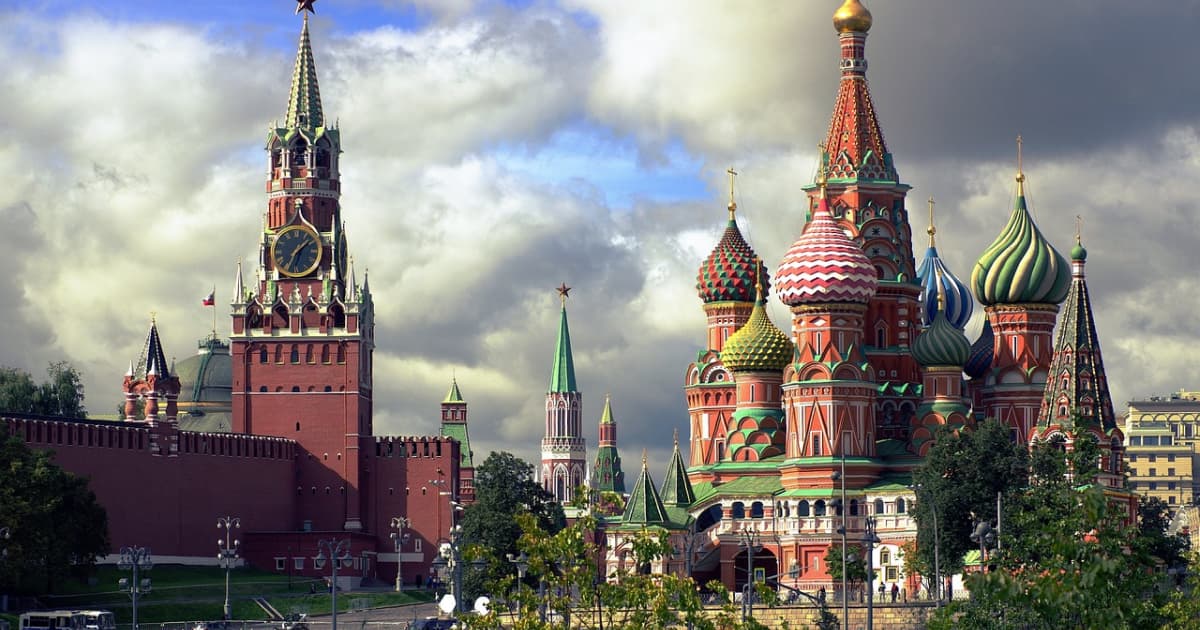
The Institute for the Study of War (ISW) commented on the Russian government's "sluggish" reaction.
"The Kremlin has yet to respond and appears to have left regional authorities to make an official response to the demonstrations... The Kremlin will likely struggle to reassure constituencies that the situation is under control and convince Jewish audiences that Jewish minorities are safe in Russia despite its efforts to present Russia as a religiously tolerant country," the ISW report says.
The chief rabbi of Derbent, in the Republic of Dagestan, Ovadia Isakov, did not rule out the need to evacuate Israelis from the region and Russia.
The situation is extremely difficult in Dagestan, people from the community are afraid, they call, and I don't know what to advise... There are about 300-400 [Jewish] families in Derbent (a city in the Dagestan Republic - ed.) and the same number throughout Dagestan... Russia is not a salvation, there were massacres in Russia too. There is no place to go,
he said.
Russian Telegram channels published information that Dagestanis had also rioted at the Flamingo Hotel in the city of Khasavyurt because of rumours about Israeli refugees who had allegedly settled there.
ChP. Dagestan (EMERGENCY. Dagestan) published a video showing a crowd of protesters demanding that hotel guests come to the windows. When this demand was not met, stones flew through the hotel windows. After the " incident", a sign was posted at the entrance to the hotel that read "No Israelis (Jews) allowed in".
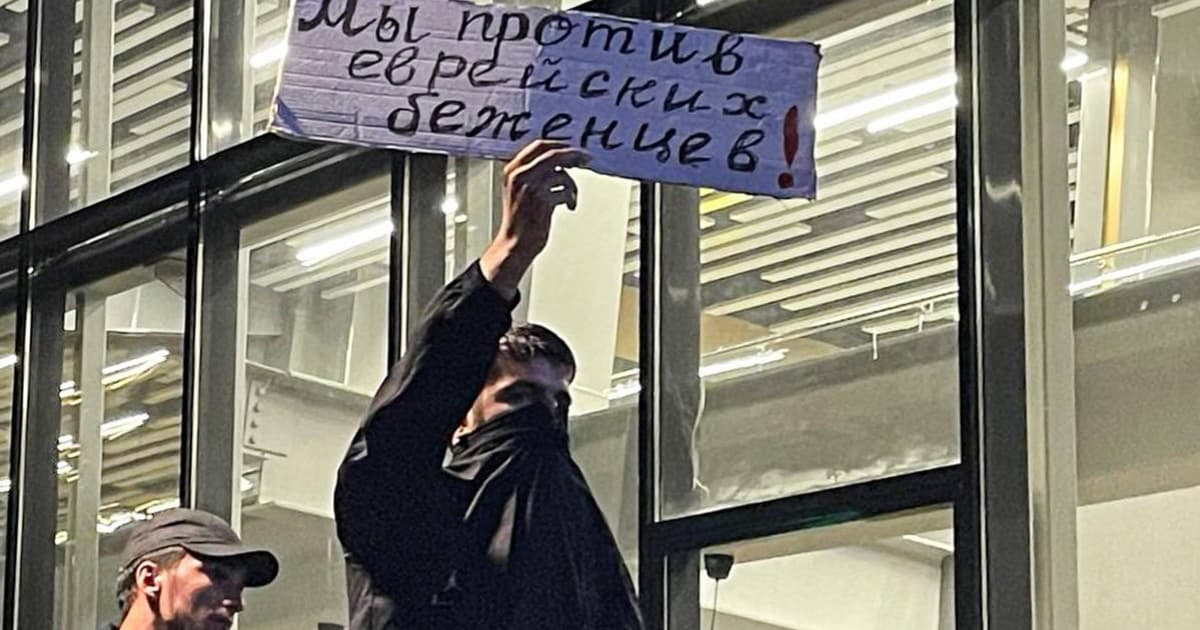
In addition, anti-Semitic actions took place in two other republics of the Russian Federation.
In Nalchik, the capital of Kabardino-Balkaria, unknown persons set fire to a Jewish cultural centre under construction. This was reported by the Russian news outlet RIA Novosti, citing sources in Russian law enforcement agencies.
"Death to the Yahudas" (Jews - ed.) was written on the wall of the building.
In Cherkessk, Karachay-Cherkess Republic, according to various estimates, from 200 to 500 people gathered for an anti-Israeli rally. They demanded that Jews be evicted from the region.
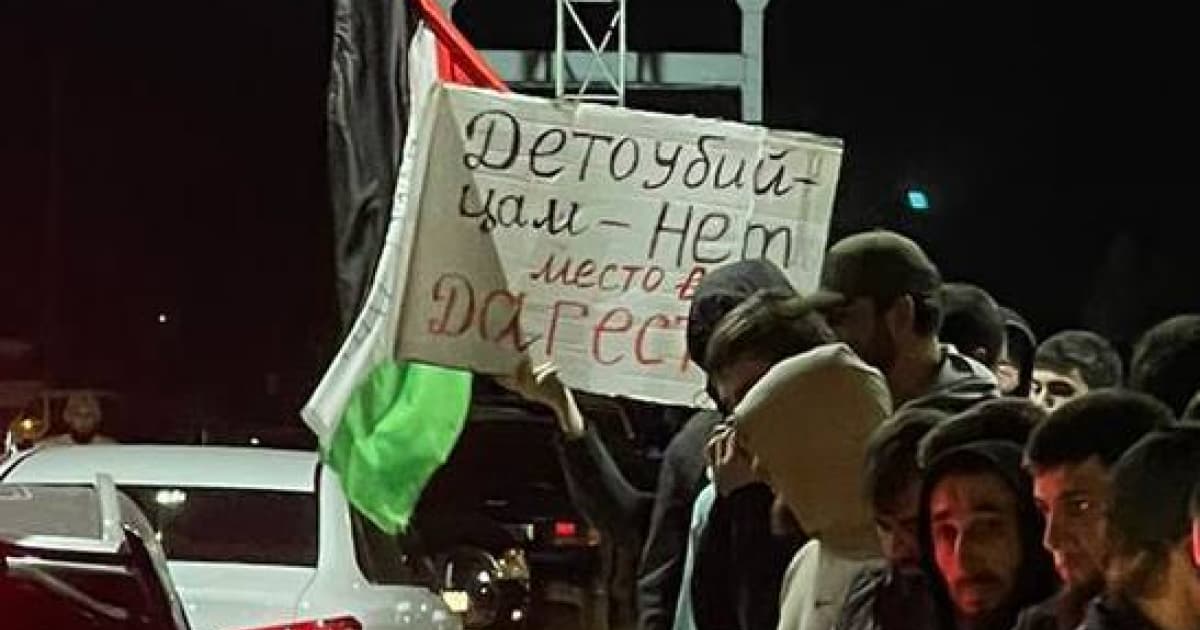
What is the world's response?
The US Special Envoy to Monitor and Combat Antisemitism, Deborah Lipstadt, also reacted to the events in Russia.
We condemn the violent protests that have been reported in Russia threatening Israelis and Jews... There is no excuse for targeting Jews or engaging in antisemitic incitement anywhere,
Lipstadt wrote in X.
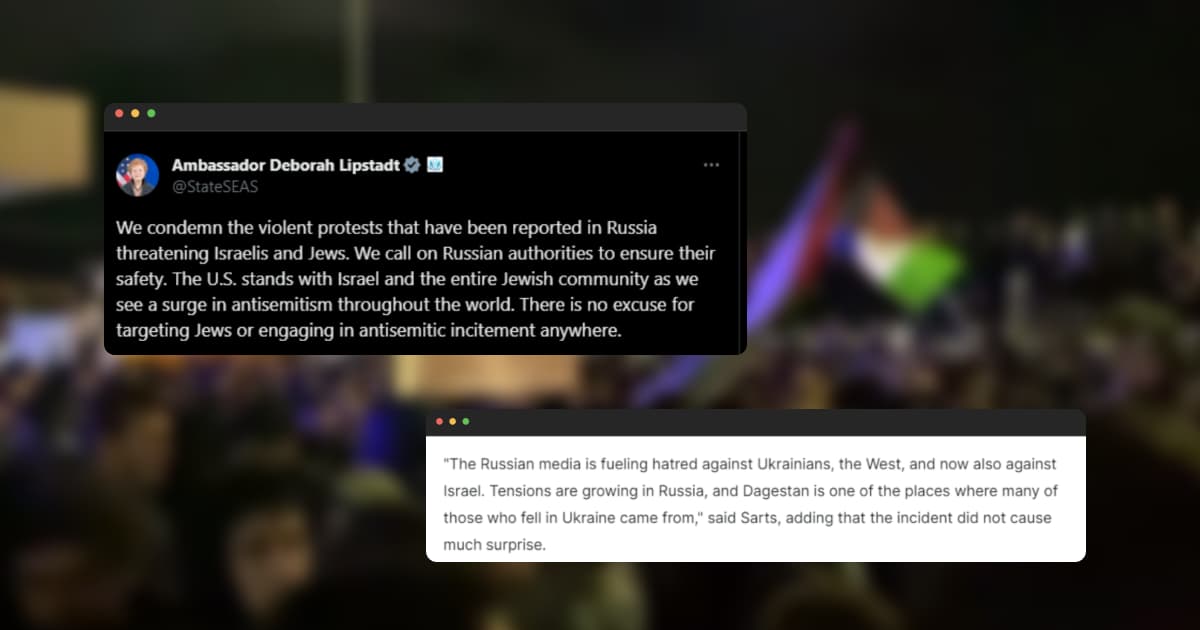
Jānis Sārts, Director of the NATO Strategic Communications Centre of Excellence, said that the situation at the Dagestan airport shows the "radicalisation of Russian society".
Russian media are inciting hatred towards Ukrainians, the West, and now Israel. Tensions are rising in Russia, and Dagestan is one of the places where many of those who died in Ukraine (in Russia's war against Ukraine - ed.) came from,
Sarts said.
He added that he was not surprised by this manifestation of anti-Semitism and that Russia does not want such manifestations "to be profitable, so there will be attempts to suppress them" by force.
What is Ukraine's response?
Volodymyr Zelenskyy called the incident in Makhachkala "part of the widespread culture of hatred towards other nations in Russia".
Hate speech is commonplace for Russian propagandists on official television. Even the latest Middle East escalation caused anti-Semitic statements by Russian ideologues,
the President of Ukraine wrote in X.
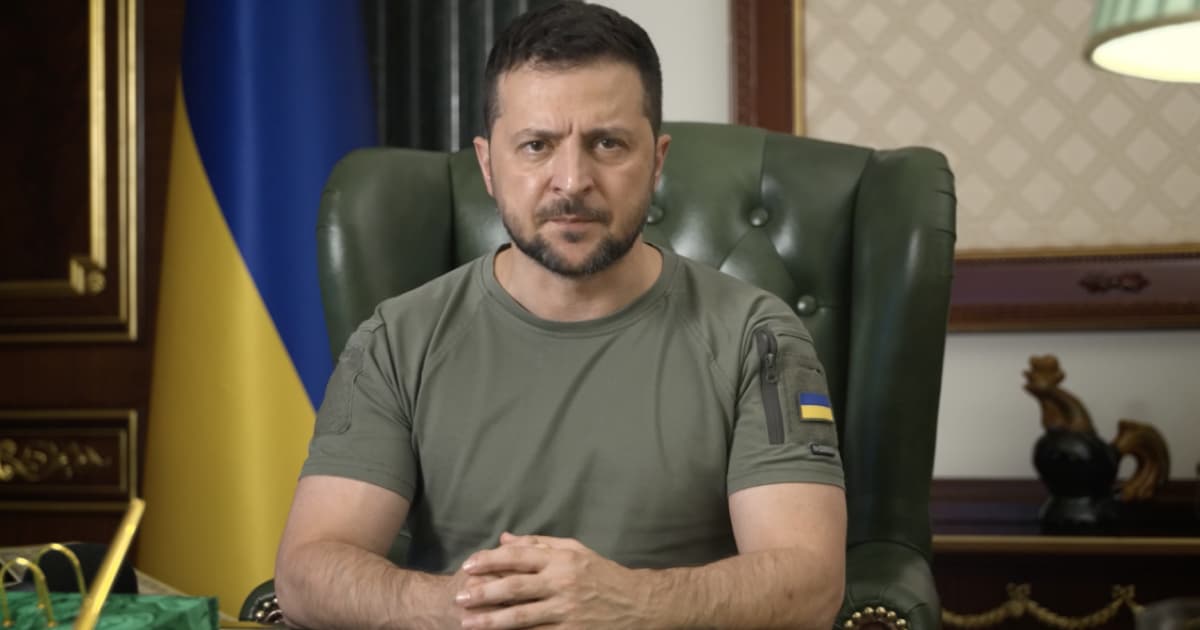
What is Dagestan? And what are Russian-Dagestani relations like?
"Fight - you will prevail, God is helping you!" Taras Shevchenko dedicated these words to the Dagestanis and Chechens in the war with the Russian Empire for their independence.
The territory of Dagestan was inhabited approximately two million years ago. However, with the formation of the Russian Empire, a new and constant threat arose for the Caucasians.
The highlanders (people living in mountainous areas - ed.) of the Caucasus have repeatedly fought with the Russians. The most active confrontation was the Caucasian War from 1817 to 1866. Dagestan, like Chechnya, Circassia and other republics, failed to gain independence.
In 1991, when the Soviet Union collapsed, the Dagestan SSR became part of Russia and was renamed the Republic of Dagestan.
The majority of Dagestan's population traditionally professes Islam, unlike Russians.
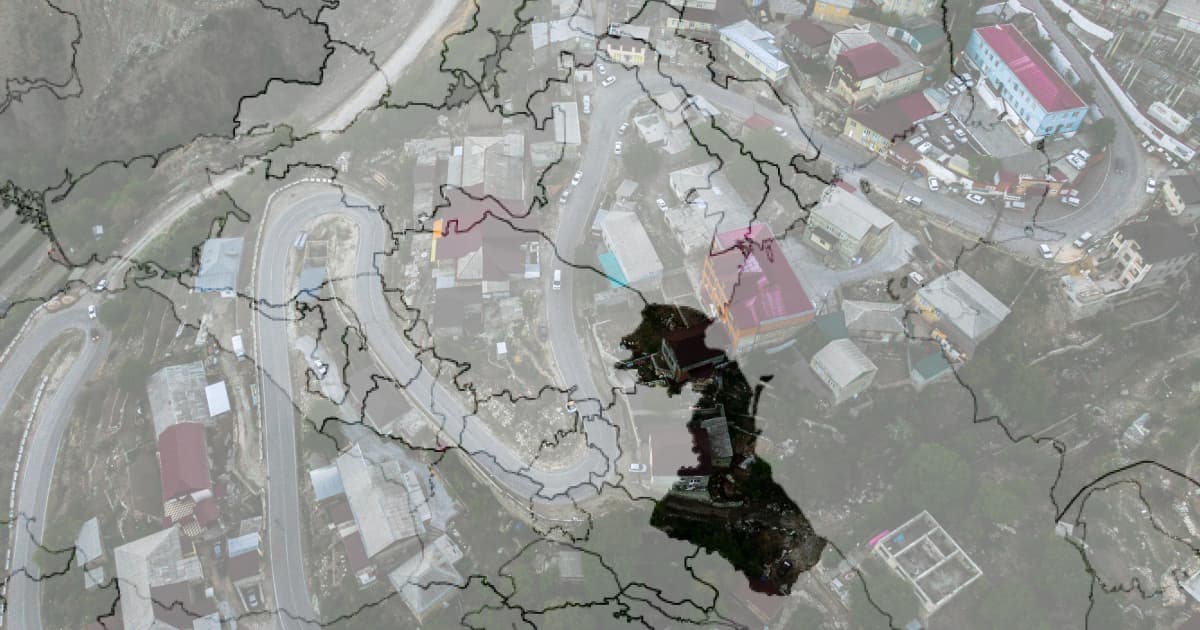
Russia uses enslaved peoples for its geopolitical purposes. If necessary, it sends them to war in Ukraine. According to a study by Mediazona, as of May 2022, Dagestanis and Buryats were the most killed in the Russian army.
If necessary, he "mobilises" his people in the face of the "Islamic danger" coming from the mountains of the North Caucasus.
In September 1999, a series of residential bombings took place in the cities of Buynaksk, Moscow and Volgodonsk. The Russian authorities blamed the attacks on the Islamic Institute Caucasus and groups of North Caucasian mercenaries.
It is impossible to say whether mercenaries from the North Caucasus were responsible for the attacks, as there has been no public investigation.
At a time when anti-Russian sentiment was growing in Dagestan and Chechnya, the Russian government "took advantage" of the situation with the bombings to justify the outbreak of the second Chechen war.
The war broke out between the units of the Islamic Peacekeeping Brigade and Russian troops. At that time, Russia was once again able to suppress the independence movement of Dagestanis and other peoples of the North Caucasus.


